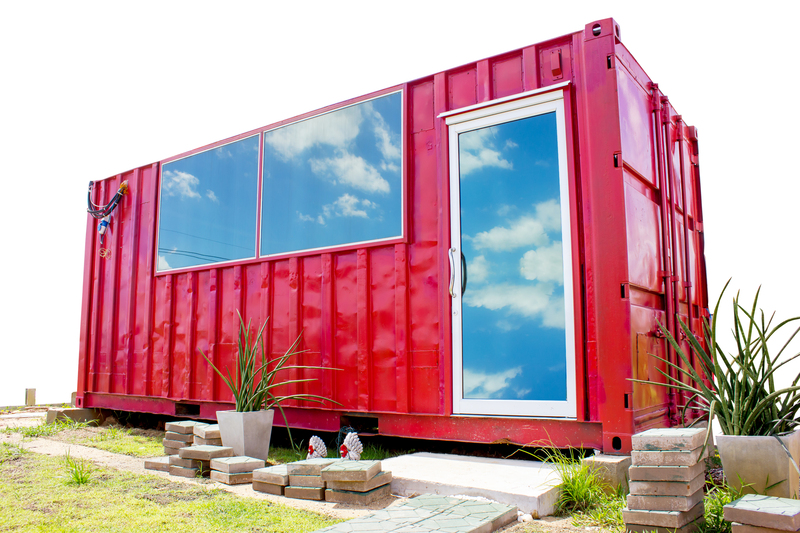Exploring the Concept of Hard Rubbish and Its Disposal
Understanding Hard Rubbish
In today's world, managing waste effectively is crucial for both environmental sustainability and maintaining community well-being. One often overlooked component of waste management is hard rubbish. What exactly constitutes hard rubbish? Typically, hard rubbish refers to large, bulky items that cannot be disposed of through regular household waste collection. These items can vary widely, from old furniture and mattresses to broken appliances and garden equipment.
Common Examples of Hard Rubbish
- Furniture items like sofas, chairs, and tables
- Electronic waste such as televisions, computers, and refrigerators
- Outdoor equipment including lawn mowers and bicycles
- Household fixtures like bathtubs, sinks, or cabinetry
- Miscellaneous large objects such as rugs or carpets
Due to their size and nature, these items pose unique challenges when it comes to disposal, necessitating specialized collection and processing methods.

The Importance of Proper Hard Rubbish Disposal
Disposing of hard rubbish appropriately is more than a matter of convenience. It is a necessary process to ensure environmental protection and resource recovery. Improper disposal can lead to several issues, including:
- Environmental pollution: When left uncollected, heavy or toxic materials can leach into the soil and water, polluting ecosystems.
- Health hazards: Large piles of hard rubbish can become breeding grounds for pests, affecting human health and safety.
- Visual blight: Accumulated rubbish can diminish the aesthetic appeal of neighborhoods and reduce property values.
Environmental Benefits of Hard Rubbish Collection
Local municipalities often organize hard rubbish collection initiatives to manage these large waste items. Here's why these actions are beneficial:
- Resource recovery: Many items collected can be recycled or repurposed, reducing the need for raw material extraction and conserving natural resources.
- Reduction of landfill waste: By recycling or reusing certain components of hard rubbish, we can significantly decrease the volume of waste sent to landfills.
Methods of Hard Rubbish Disposal
Effective hard rubbish disposal requires a multifaceted approach. Here are several methods commonly employed by municipalities and individuals:
Council Pick-Ups
Most cities offer scheduled hard rubbish collection services where residents can dispose of unwanted large items free of charge. During these designated times, individuals can place their hard rubbish on the curb for collection. It's important to follow guidelines regarding the types and quantities of items accepted, as well as the correct placement for collection.
Private Waste Contractors
In areas where council services are unavailable or for off-schedule pick-ups, hiring private waste contractors is a viable alternative. These companies specialize in large waste removals and often provide eco-friendly disposal services.
Recycling and Donation
Some hard rubbish comprises materials that can be recycled or reused. Before disposing of items, consider:
- Donating usable items to charities or second-hand stores
- Taking electronics to e-waste recycling facilities
- Separating metals or plastics for specialized recycling companies
Organized Community Clean-up Events
These events are usually community-driven initiatives aimed at collecting and properly disposing of hard rubbish while educating the public about sustainable waste practices. Participating in or organizing such events can contribute to cleaner neighborhoods and increase awareness about waste management.

Challenges and Innovations in Hard Rubbish Disposal
Despite the methods in place, hard rubbish disposal presents several challenges:
- Cost: Both municipal services and private waste contractors involve logistical costs that can be substantial.
- Illegal dumping: When services are not accessible or understood, illegal dumping becomes an issue, creating environmental and social problems.
Innovative solutions continue to emerge to tackle these challenges, including:
- Smart waste management systems that optimize collection routes and schedules using technology.
- Incentive programs to encourage proper recycling, like reward schemes for reporting illegal dumping.
- Community awareness initiatives focusing on education about the impact of improper disposal and benefits of recycling.
Conclusion
Understanding and managing hard rubbish is essential for fostering a sustainable future. By harnessing community engagement, innovative disposal techniques, and comprehensive education, we can mitigate the environmental and social impacts of hard rubbish. Adopting best practices in disposal not only enhances our surroundings but also contributes positively to the planet.